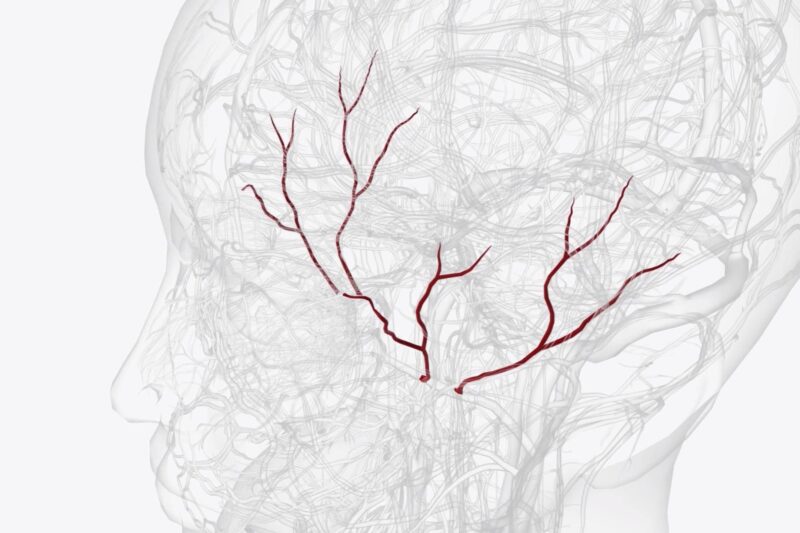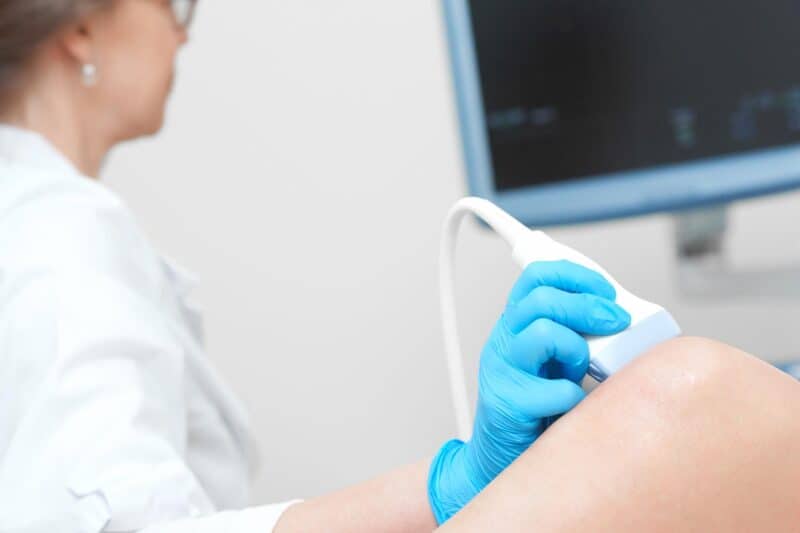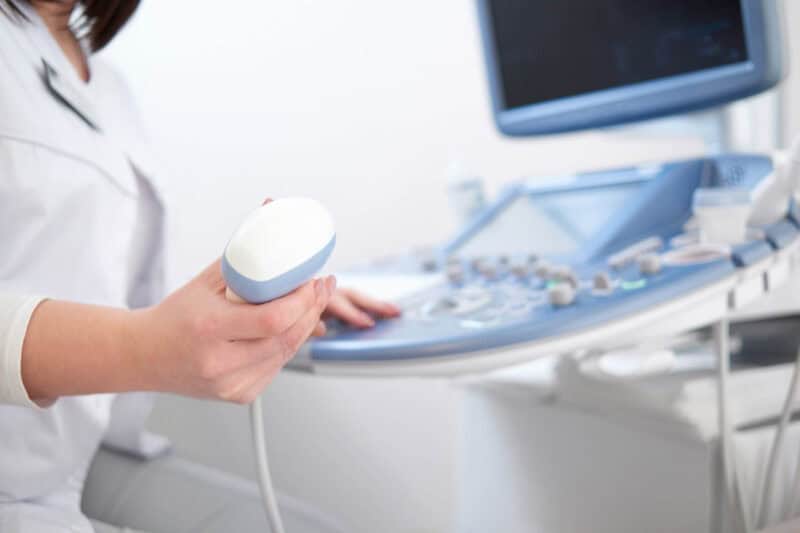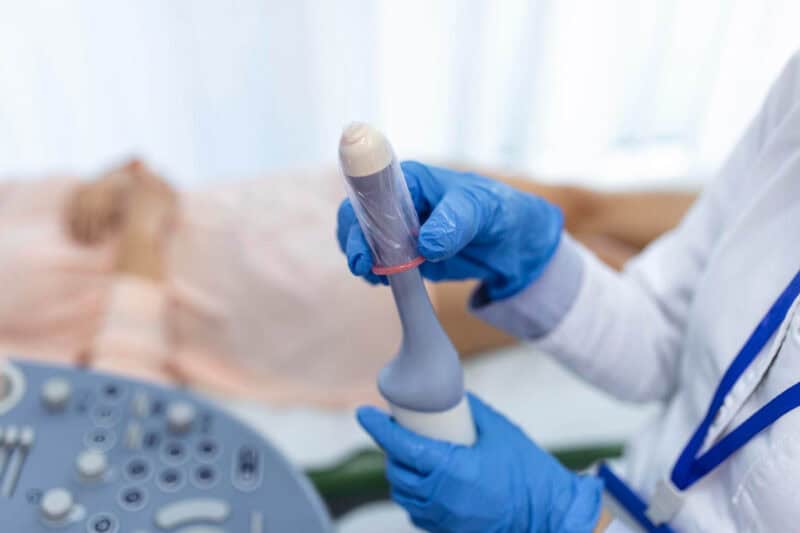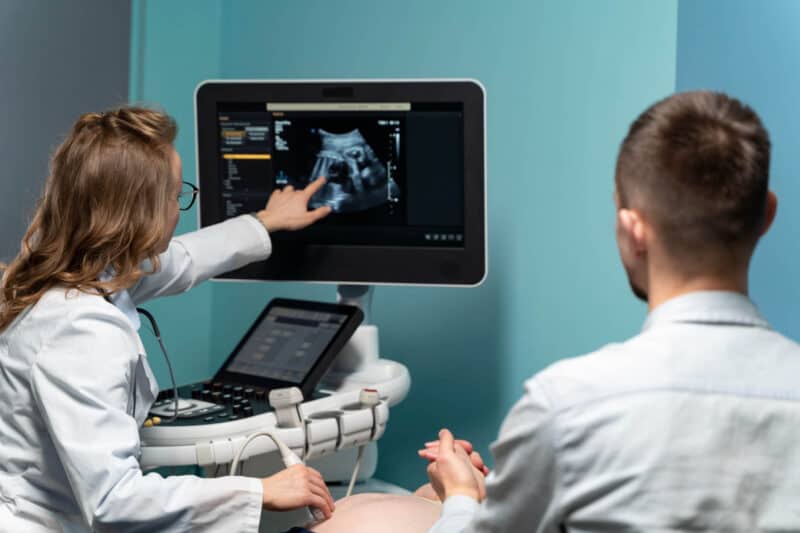Private Ultrasound Clinic in Reading
Benefit from accurate diagnostic imaging with advanced ultrasound services at The Forbury Clinic. Contact us today to arrange a consultation and take the first step toward precise diagnosis and tailored treatment.

What Sets Us Apart
At The Forbury Clinic, we go beyond standard ultrasound services to ensure a thorough, patient-centred experience. You will be seen by a sub-specialist consultant radiologist who has expertise in diagnosis.
We are so proud to be partnered with over 30 specialist radiologists, all of who have posts in the NHS at the Royal Berkshire Hospital.
Private GP Consultation
A dedicated GP appointment to assess whether an ultrasound is the right diagnostic step for you.
Expert Scan by a Radiologist
Your scan will be performed by a consultant radiologist with expertise in the specific area being examined.
Post-Scan Advice
Receive guidance from your radiologist immediately after your scan, ensuring you understand the findings.
Seamless follow-up care
Your scan results will be shared with you and your local GP. Or book into see our private GP for a follow up consultation.
Ultrasound Pricing
Initial 15 minute consultation
An initial 15-minute consultation with our Private GP, Dr Asim Naqvi– £60.
One-Part Ultrasound (if required)
A targeted ultrasound scan performed by a specialist consultant radiologist.
£317 including full reporting.
Two-Part Ultrasound (if required)
A two part targeted ultrasound scan carried out by a specialist consultant radiologist.
£427 including full reporting.
Introduction
Ultrasound imaging is a safe, non-invasive diagnostic tool that uses high-frequency sound waves to create detailed images of the body’s internal structures. This technique is essential for diagnosing and monitoring a wide range of conditions, from pregnancy to organ abnormalities. Addressing health concerns promptly with accurate ultrasound diagnostics can lead to more effective treatments and improved outcomes. At The Forbury Clinic, we specialise in providing advanced ultrasound services with a focus on patient comfort and accurate results. Contact us today to learn more and schedule a consultation.
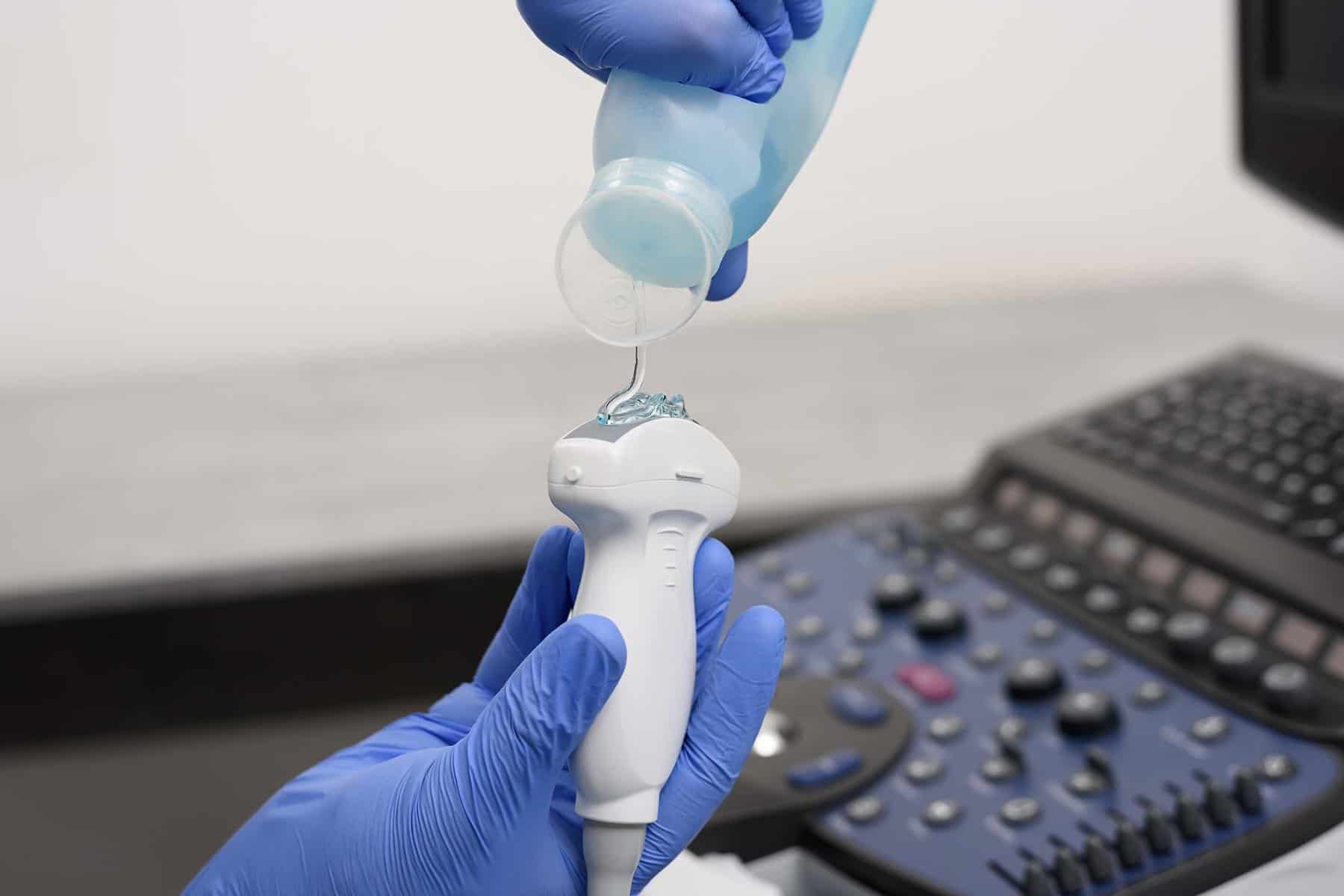
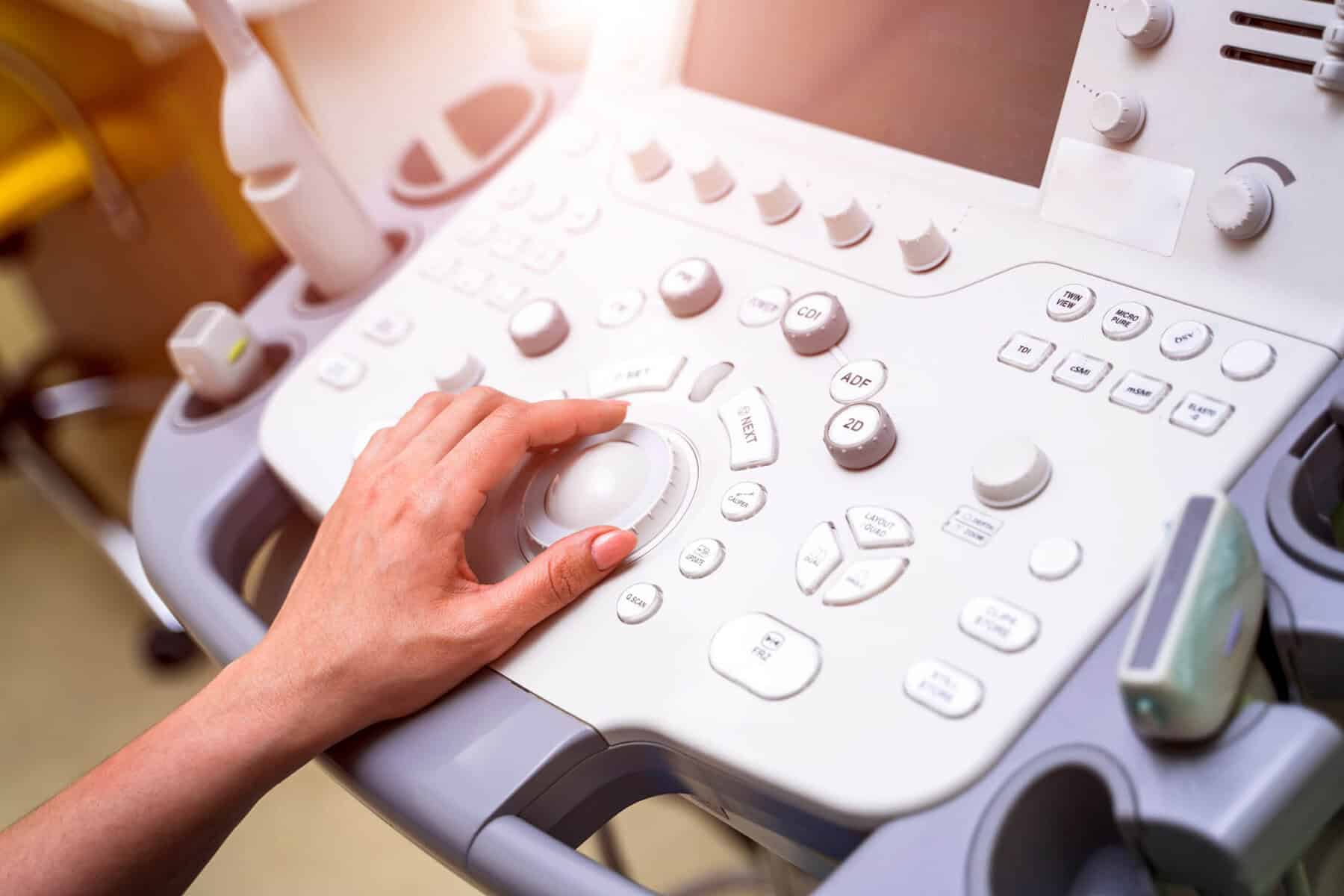
What is Ultrasound?
Ultrasound, also known as sonography, is a diagnostic imaging technique that uses high-frequency sound waves to produce real-time images of the body’s internal structures. Unlike X-rays or CT scans, ultrasound does not use ionising radiation, making it a safe option for all patients, including pregnant women. Ultrasound is commonly used to examine the abdominal organs, such as the liver, kidneys, and bladder, as well as the heart, blood vessels, and reproductive organs. Common symptoms that may require an ultrasound include unexplained pain, swelling, or abnormal blood test results. The detailed images provided by ultrasound are crucial for diagnosing various medical conditions and planning appropriate treatments.
Causes and Risk Factors
While ultrasound itself is a diagnostic tool, it helps in identifying the causes and risk factors of various conditions:
Sports Imaging:
A valuable tool for diagnosing and monitoring musculoskeletal injuries
Abdominal Pain:
Ultrasound can identify causes such as gallstones, liver disease, or appendicitis.
Reproductive Health:
Pelvic ultrasounds diagnose conditions such as ovarian cysts, uterine fibroids, and ectopic pregnancies.
Blood Flow Issues:
Doppler ultrasound assesses blood flow and detects blockages or clots.
Understanding these applications ensures the effective use of ultrasound for diagnosing and managing health conditions.
Diagnosis
At The Forbury Clinic, ultrasound is a critical tool for diagnosing a wide range of conditions. The process includes:
- Initial Consultation: Discussing your symptoms and medical history with our private GP to determine the need for an ultrasound.
- Preparation: Depending on the type of ultrasound, you may need to follow specific instructions, such as fasting or drinking water before the scan.
- Imaging Procedure: You will lie on an examination table while a technician applies a gel to the skin and uses a transducer to capture images. The procedure typically lasts 20 minutes.
- Image Analysis: Your specialist radiologist will analyse the ultrasound images to identify any abnormalities or conditions.
- Reporting: Detailed reports are shared with your referring physician, who will discuss the findings and potential treatment options with you.
These steps ensure a thorough and accurate diagnostic process, aiding in effective treatment planning.

Treatment Options
While ultrasound itself is not a treatment, it plays a crucial role in guiding various treatment decisions. Based on ultrasound findings, several treatment options may be considered:
Non-Surgical Treatments:
Ultrasound can help monitor the effectiveness of medications, physical therapy, and other non-invasive treatments for conditions like liver disease, kidney stones, and vascular issues.
Surgical Planning:
Detailed ultrasound images provide surgeons with critical information to plan and execute procedures with precision. This is particularly important for surgeries involving the abdominal organs, reproductive system, and heart.
Cancer Treatment:
Ultrasound is essential for planning and monitoring cancer treatments, including biopsies, ablations, and surgical interventions. It helps in assessing the size, location, and progression of tumors.
Interventional Radiology:
Ultrasound-guided procedures, such as needle biopsies and fluid drainages, allow for precise targeting of abnormal tissues, improving the effectiveness and safety of these minimally invasive interventions.
Monitoring Chronic Conditions:
Regular ultrasounds can track the progress of chronic conditions, such as liver cirrhosis or polycystic ovary syndrome (PCOS), enabling timely adjustments to treatment plans.
At The Forbury Clinic, our comprehensive range of diagnostic imaging services supports a variety of treatment plans, ensuring the best possible outcomes for our patients.
Managing Ultrasound
Effective management of ultrasound procedures involves preparation, proper procedure protocols, and follow-up care. At The Forbury Clinic, we ensure that every step of the ultrasound process is handled with the utmost care:
Patient Preparation:
Providing detailed instructions on how to prepare for your ultrasound, including any dietary restrictions or need for a full bladder.
Comfort and Safety:
Ensuring patient comfort and safety during the ultrasound procedure, addressing any concerns and explaining the process.
Timely Results:
Delivering prompt and accurate results to facilitate timely diagnosis and treatment.
Follow-Up Appointments:
Scheduling follow-up appointments to discuss results and plan the next steps in your care.
Education and Support:
Offering educational resources and support to help you understand your ultrasound results and their implications for your health.
These management strategies ensure that diagnostic imaging at The Forbury Clinic is effective, efficient, and patient-centered.
Complications
While ultrasound is generally a safe and effective diagnostic tool, it is important to be aware of potential complications:
- False Positives/Negatives: There is a small risk of inaccurate results, which may require further testing for confirmation.
- Discomfort: Some patients may experience mild discomfort during the procedure, particularly if a full bladder is required.
- Limited Scope: Ultrasound may not provide as detailed images as other imaging modalities like MRI or CT for certain conditions.
Prognosis
The prognosis for patients undergoing ultrasound at The Forbury Clinic is excellent. Our state-of-the-art technology and expert radiologists ensure accurate and timely diagnoses, leading to effective treatment plans and improved health outcomes.

Our sub-specialist Consultant Radiologists
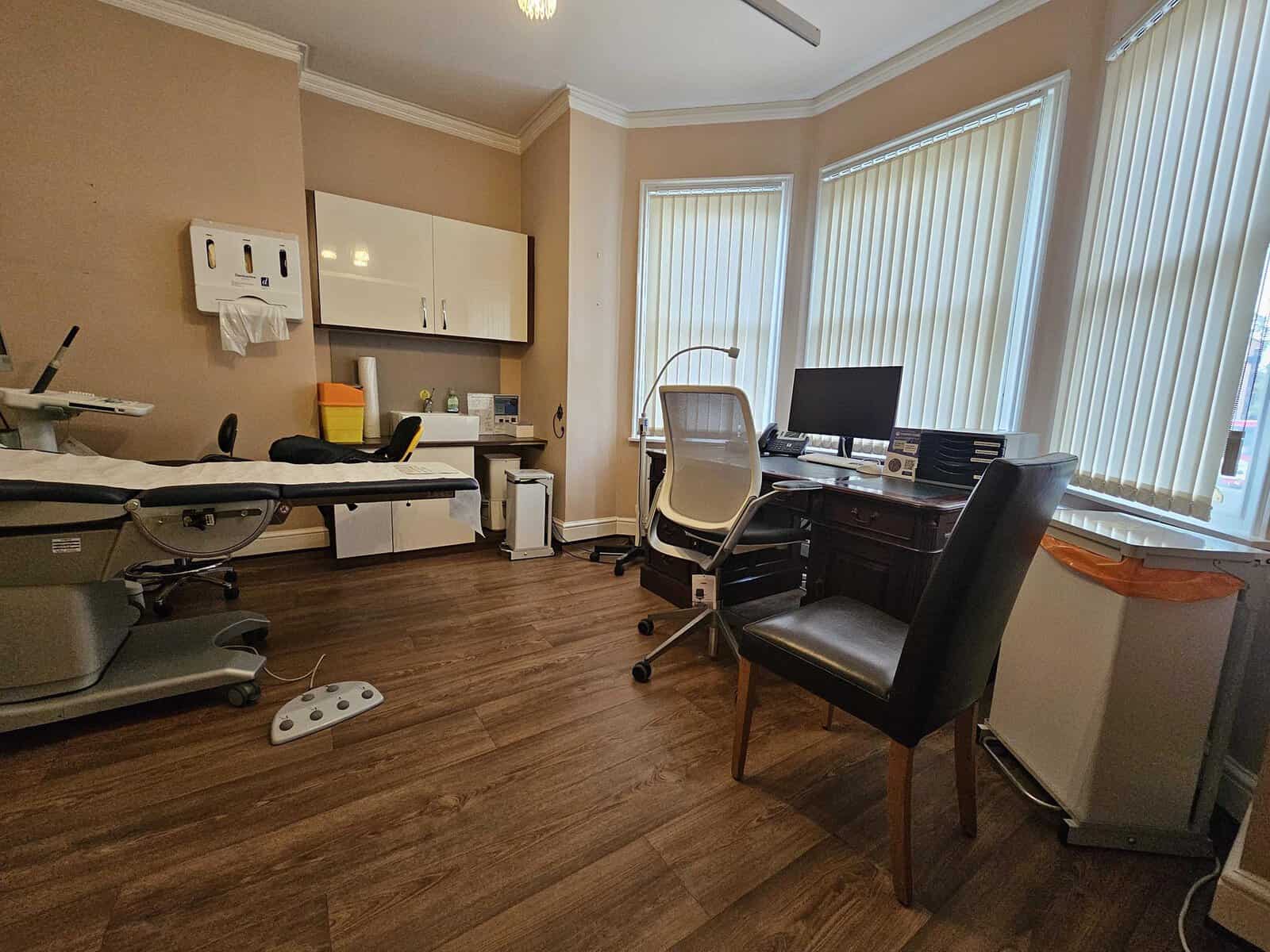
Why Choose The Forbury Clinic?
Our Consultant Radiologists are highly trained medically qualified doctors who are all based in Reading and each subspecialise in different parts of the body. You will not be scanned by a non-medically trained sonographer.




